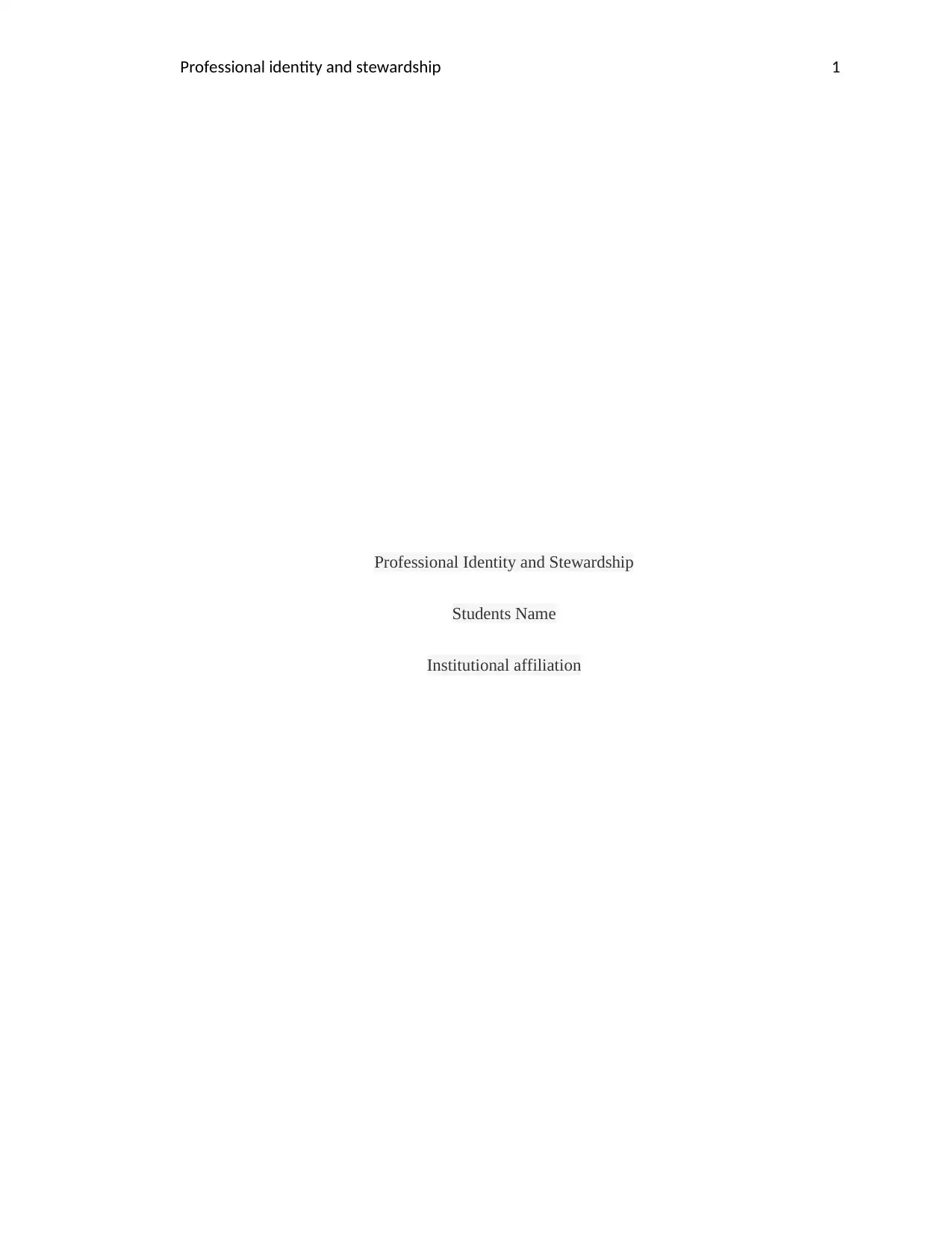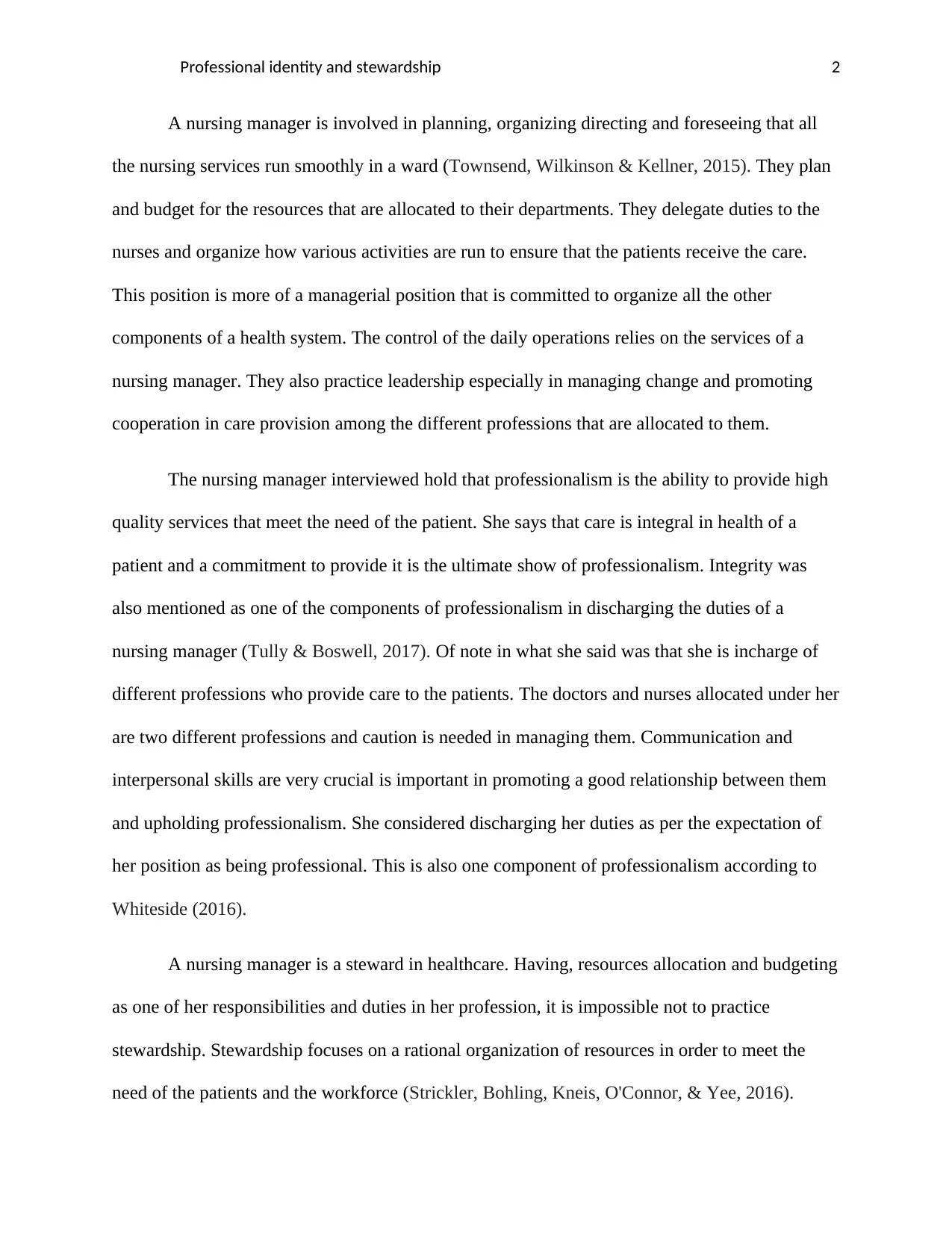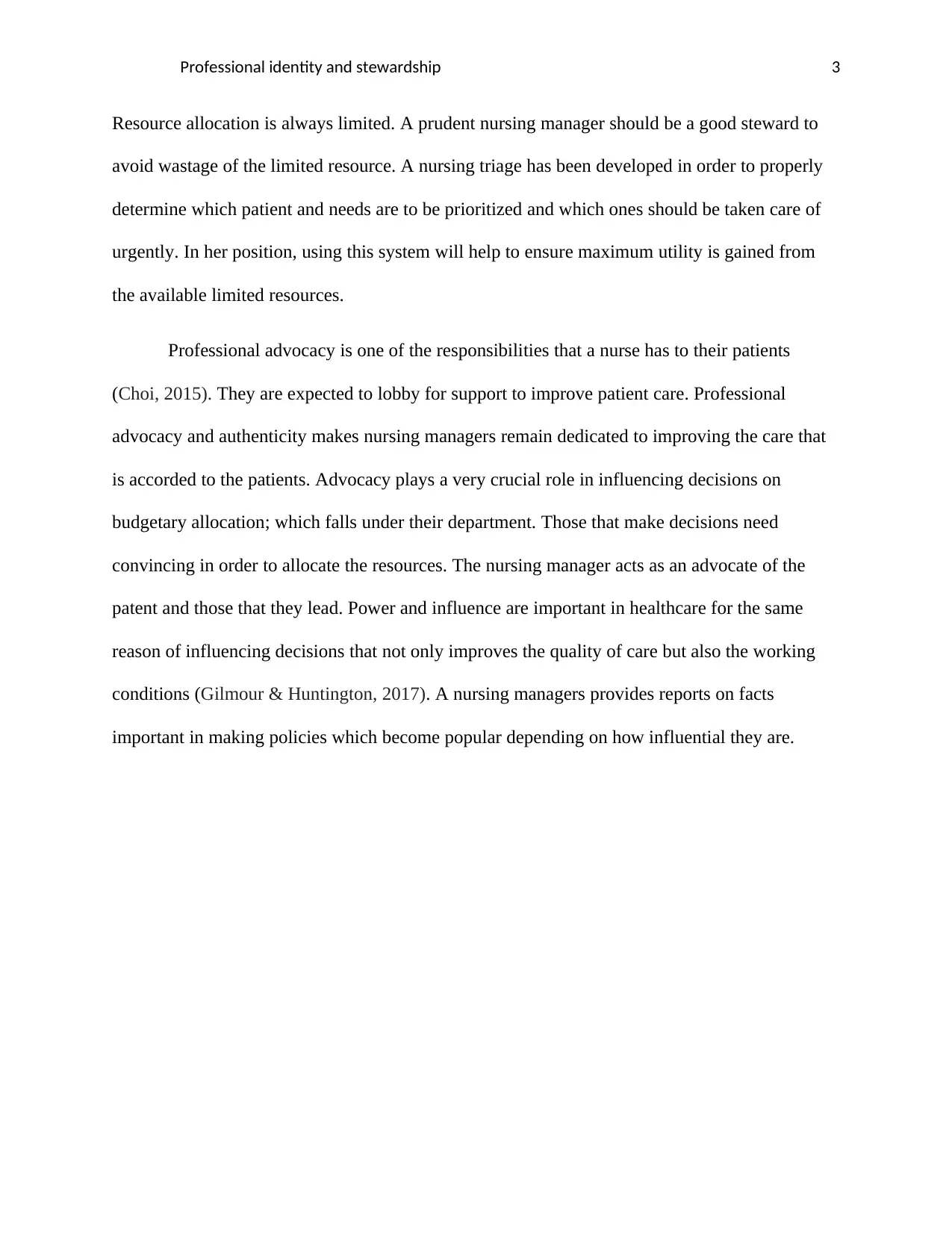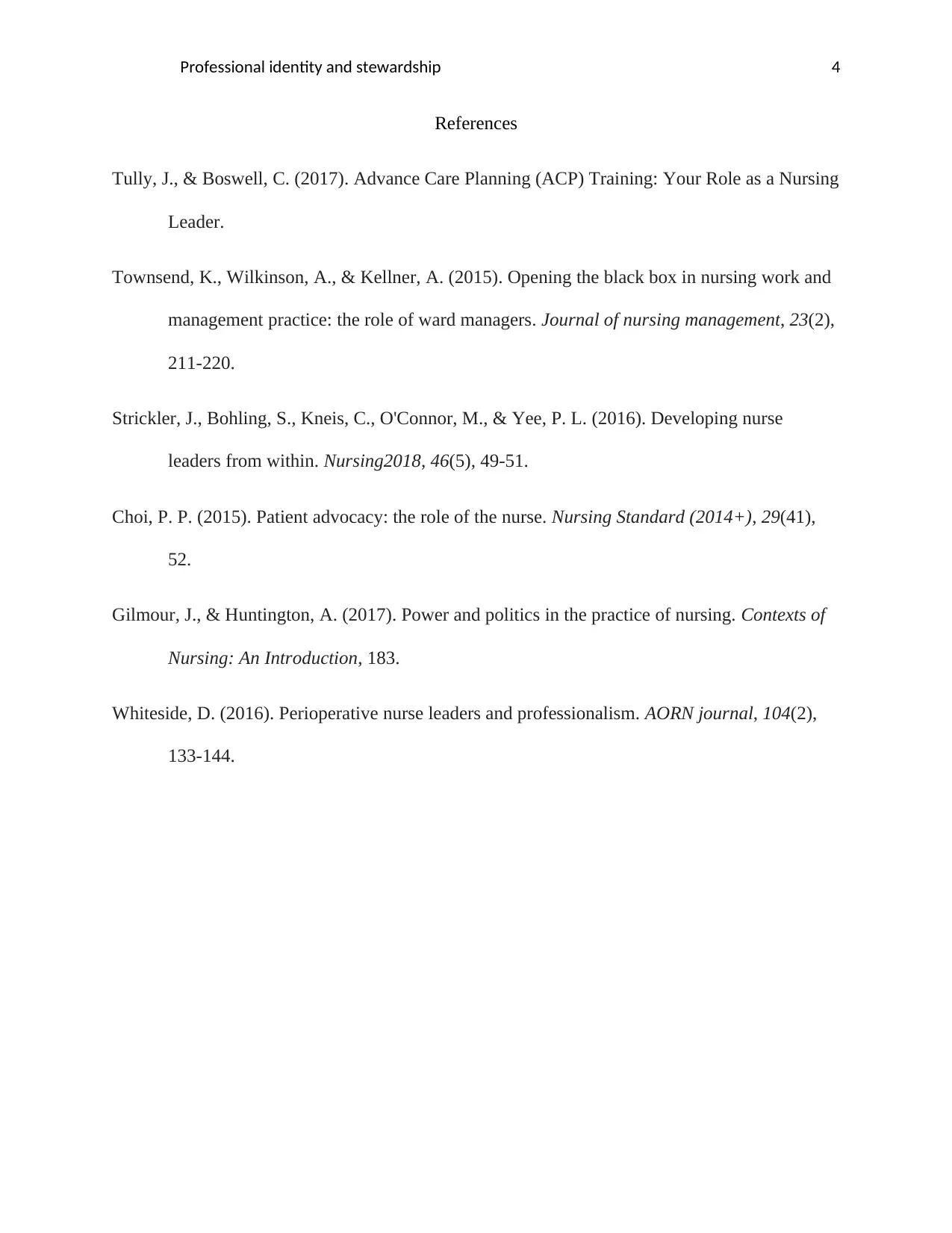Healthcare Report: Professional Identity and Stewardship Analysis
VerifiedAdded on 2023/01/18
|4
|817
|65
Report
AI Summary
This report delves into the concepts of professional identity and stewardship within the context of nursing management. It highlights the responsibilities of a nursing manager, including planning, organizing, and directing nursing services. The report emphasizes the importance of professionalism, integrity, communication, and interpersonal skills in managing diverse healthcare teams. It explores stewardship through resource allocation and the use of systems like nursing triage to optimize resource utilization. Furthermore, the report discusses the role of professional advocacy in improving patient care and influencing budgetary decisions. The influence of power and politics in healthcare, particularly in policy-making, is also addressed. The report draws on various academic sources to support its arguments, providing a comprehensive analysis of professional identity and stewardship in nursing practice.
1 out of 4











![[object Object]](/_next/static/media/star-bottom.7253800d.svg)